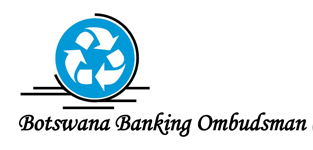The Banking Ombudsman report directly to the Banker’s Association of Botswana.
Alternative Considerations
Fundamentals of a financial services ombudsman is an embodiment of principles and protocol which financial services providers worldwide have accepted as standards of good practice. According to the World Bank Report 2012, the title‘ombudsman’ should be used for an external body that complies with ombudsman fundamental principles, which includes inter- Alia.
- Independence
- Governance
- Accessibility
- Transparency
- Accountability
Otherwise, a ‘pretend’ ombudsman would damage consumer trust and confidence.

Principle: The decision-making process and administration of the scheme are independent of industry associations.
Purpose: To ensure that the processes and decisions of the scheme are objective, unbiased, and are seen to be so.
- The financial services ombudsman scheme provides an alternative to the Courts and therefore should be and seen to be independent and impartial like judges. To achieve the confidence of the consumers
- The financial ombudsman should not be appointed by the industry, nor a body with a majority of industry members.
- The person so appointed should not have worked in the financial industry or a financial industry association within the previous three (3) years.
- To preserve the ombudsman’s independence, the term should be 5 years and may be subject to renewal made at least one year before the term ends, so as not to undermine the ombudsman’s independence.
- The industry should not be able to bring pressure on the ombudsman by influencing his/her salary or its suspension It may be helpful to link the salary to that of a particular grade of judge or another public official.
- The ombudsman decision / recommendation on a case should be final.
Principle: The ombudsman scheme must have an independent board, governance body, council, and that this is the body that appoints the ombudsman, or a body equally independent of the ombudsman.
Purpose: To give customers and scheme members confidence in the scheme and to ensure the scheme’s independence is safeguarded.
The role of the governance body is not to be involved in deciding neither cases nor the day-to-day management of the ombudsman scheme, but to:
- Ensure and safeguard the ombudsman independence
- Ensure that the ombudsman scheme has adequate resources
- Oversee the efficiency and effectiveness of the ombudsman scheme;
- And tender advice to the ombudsman on the strategic direction of the scheme.
Principle: The scheme makes itself readily available to customers by promoting knowledge of its existence, being easy to use, and having no cost barriers.
Purpose: To promote customer access to the scheme on an equitable basis.
- Generally, consumers would have problems if they were unaware of the availability of services provided by an ombudsman where efforts are not made to publicize; they should know where and how to contact the office and this means that contacting the ombudsman should not be a cost barrier.
- Additionally, the ombudsman should make information available, similarly, financial businesses should be required to tell dissatisfied consumers about the ombudsman.
- The ombudsman website must be available, regularly updated, and must explain to consumers how to make a complaint.
- Such information must also be made available to consumers who do not have access to internet facilities.
- Consumers should be able to phone financial services providers free-of charge, so that cost is not a barrier for the disadvantaged and poor
- Principle: The decision-making process and administration of the scheme are independent of industry associations.
Principle: The scheme produces decisions that are fair and seen to be fair by observing the principles of procedural fairness, by making decisions on the information before it, and by having specific criteria upon which its decisions are based.
Purpose: To ensure that the decisions of the scheme are fair and are seen to be fair.I The financial ombudsman should be published and easily accessible including:
Types of disputes the ombudsman can deal with
- Any procedure which the consumer must do before referring a dispute to the financial ombudsman
- The processes followed by the ombudsman to resolve disputes
- Any costs to be paid, or which can be awarded at the end of the process
- The basis for the decision (fairness/equity or strict law)
- Whether or not the decision is published
- Whether the decision is binding on the financial provider or consumer
- The consequence of not complying with a decision.
Principle: The scheme publicly accounts for its operations by publishing its determinations and information about complaints and highlighting any systemic industry problems.
Purpose: To ensure public confidence in the scheme and allow assessment and improvement of its performance and that of scheme members.
- Accountability relate to paying due regard to the overall public interest in the forward-planning and day-to-day running of the ombudsman scheme.
- Ombudsman publishing a report at least yearly, explaining the work done, providing appropriate statistics about the disputes they have handled and the way in which they handled them.
- Ombudsmen must consult publicly in advance about their business plans, procedures, and budgets. This is critical as it is an opportunity to gather the information that assists to estimate future workload.
- Where financial ombudsmen identify systemic issues that financial regulators would be better placed to tackle, it is useful that the ombudsman draws these to the attention of the financial regulators.

